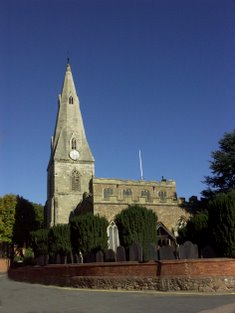As I made my way to Westminster Abbey the evening of Sunday the 11th of September 2011, for a service to mark the 10th anniversary of 9/11, a sudden sinking in the pit of my stomach began.
My journey in working to build understanding, friendship and love between faith communities began before the 11th of September 2001, but the events of that day meant that the course I had embarked upon gained a particular poignancy. Because of the events of 9/11 the experiences of my own life were brought into significance – my seemingly obscure skills were suddenly, and tragically, in demand.
I had a ticket for a special seat toward the front of the abbey, and as I sat there I started to recognise friends and colleagues. First I spotted Bishop Angaelos – bishop of the Coptic Orthodox Christian community in England – sitting on the front row. I dared to cross the invisible lines of who goes where to speak to this kind and gentle soul who always speaks so graciously to everyone he meets, always remembers names, and works diligently to cross the lines of conflict and difference to make friends.
Then I spotted a good friend, Syed Yusuf al-Khoei – an Iraqi Shi’a Muslim leader, who heads up an international organisation working to build peace not only in Iraq, but across the Middle East and the world. He stood up recently in Lambeth Palace to speak of the importance of protecting the Christian community in Iraq who are under such threat, and of their great value to the building up of Iraq. He was sitting in the front row with a whole group of eminent ayatollahs from Iraq and from Lebanon, one of whom, Seyed Musawwi, I had invited to Brighton to speak at the outbreak of the US invasion of Iraq.
The Rev’d Nadim Nassar, an Anglican priest from Syria, gave the address – speaking of how it was not religions or people of faith who were responsible for the events of 9/11, nor were they responsible for all the acts of war and violence that have taken place since. But rather it is people of faith who have worked so hard to build understanding and love between peoples, a work enjoined on them by God through their various faith traditions. We heard stories of love and sacrifice that took place on that day. And we heard messages of hope and courage for the future, the courage it takes to go on loving, loving recklessly, loving audaciously, loving with all one’s being.
At the door when I was going out was a Jewish rabbi from New York living in London, who I met only recently at a Muslim gathering in the House of Lords. All these people have worked hard all their lives to build Love between peoples of all faith and none, peoples of every nation. And here they were in Westminster Abbey, Anglican and Orthodox priests, ayatullahs and imams and rabbis, all standing together to shake the hands of those who had attended - all 2,000+.
Today, I had lunch with a friend I first met in Cairo. He works across the globe, especially with young people, building faith, building understanding, building friendship. He told me of how during the protests in Tahrir Square the Christians would guard the Muslims while they prayed, and the Muslims guarded the Christians. Of how the Anglican cathedral in Cairo held prayers for people of all faiths together, asking for God’s blessing in the upcoming elections - that Muslims were coming to the cathedral to pray alongside Christians for the future of their country.
We spoke of one question – what is God saying in all this? What is he telling us? Out of the dust of acts of violence motivated by ignorance, fear and suspicion emerge a courageous determination that these motivations be not the last voice; that the lasting voice be the voice of God’s Love for us all.
Bonnie Evans-Hills






